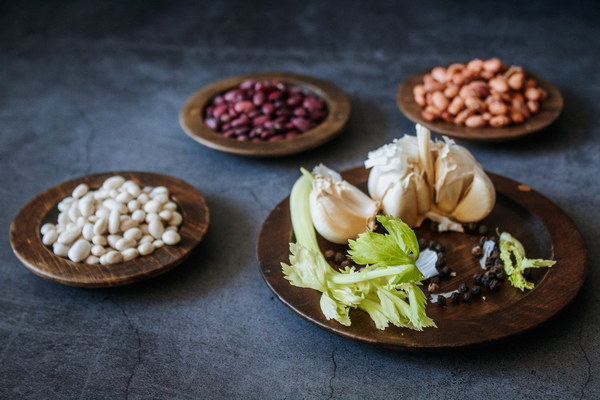Nourishing Young Minds A Comprehensive Guide to Child-Friendly Health Supplements
In today's fast-paced world, it's becoming increasingly difficult to ensure that our children receive all the necessary nutrients for their growth and development. This is where health supplements come into play. These nutritional supplements can bridge the gap between a balanced diet and the specific needs of our little ones. In this article, we will explore a comprehensive guide to child-friendly health supplements, focusing on the most beneficial ingredients and how to incorporate them into your child's daily routine.
1. Omega-3 Fatty Acids
Omega-3 fatty acids, found in fish oil, flaxseeds, and walnuts, are essential for brain development and cognitive function. These healthy fats have been shown to improve concentration, memory, and mood. To introduce omega-3s into your child's diet, consider giving them a fish oil supplement or adding flaxseeds and walnuts to their favorite recipes.

2. Vitamin D
Vitamin D is crucial for bone health and plays a vital role in the absorption of calcium. Children who are deficient in vitamin D may experience weakened bones, increased risk of fractures, and delayed growth. To ensure your child gets enough vitamin D, consider incorporating fortified milk, orange juice, and cereals into their diet. Additionally, a vitamin D supplement can be beneficial, especially for those living in areas with limited sunlight exposure.
3. Iron
Iron is an essential mineral that helps transport oxygen to the body's cells. Children with iron deficiency may experience fatigue, weakness, and poor cognitive development. To increase iron intake, serve iron-rich foods such as lean meats, poultry, fish, beans, lentils, and fortified cereals. Iron supplements can also be a helpful option, but it's essential to consult with a healthcare professional before starting any new supplement regimen.
4. Calcium
Calcium is vital for strong bones and teeth, and it plays a crucial role in muscle and nerve function. To ensure your child gets enough calcium, incorporate dairy products, leafy green vegetables, and fortified foods into their diet. If necessary, a calcium supplement can be added to their routine, but it's important to ensure that the child is also consuming enough vitamin D, as it aids in calcium absorption.
5. Probiotics
Probiotics are beneficial bacteria that promote gut health and immune function. Introducing probiotics into your child's diet can help with digestion, reduce the risk of infections, and support overall well-being. Probiotics can be found in fermented foods such as yogurt, kefir, and sauerkraut. If your child is not a fan of these foods, probiotic supplements are an excellent alternative.
6. Vitamin C
Vitamin C is an antioxidant that supports the immune system, promotes collagen production, and helps with iron absorption. To ensure your child gets enough vitamin C, serve fruits and vegetables such as oranges, strawberries, bell peppers, and kale. Vitamin C supplements can also be beneficial, especially during cold and flu season.
7. Zinc
Zinc is an essential mineral that plays a role in immune function, wound healing, and growth. Children with zinc deficiency may experience delayed growth, weakened immune system, and decreased appetite. To increase zinc intake, serve foods such as lean meats, poultry, legumes, and fortified cereals. If necessary, a zinc supplement can be added to their routine, but it's important to monitor their zinc levels to avoid toxicity.
In conclusion, incorporating child-friendly health supplements into your child's diet can provide essential nutrients that may be lacking in their daily meals. However, it's crucial to consult with a healthcare professional before starting any new supplement regimen. By doing so, you can ensure that your child receives the appropriate nutrients to support their growth, development, and overall well-being. Remember, a balanced diet and a healthy lifestyle are key components of a nutritious and happy childhood.









